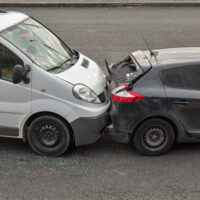Rear-End Collisions And Challenging False Assumptions

When a rear-end collision occurs, many people (including insurance adjusters) immediately assume the rear driver is fully at fault. While it’s true that drivers are expected to maintain a safe distance, this assumption doesn’t always reflect the full reality of the crash.
In Miami, where traffic patterns can be unpredictable and sudden stops are common, it’s critical to understand that the lead driver’s actions may also contribute to a collision. A Miami personal injury lawyer can investigate the full circumstances of the crash and fight to secure the compensation you deserve. Challenging false assumptions isn’t just possible, it may be the key to protecting your financial future.
Rear Drivers Aren’t Always to Blame
Florida law presumes that the rear driver in a rear-end crash is responsible. Yet that presumption can be challenged with the right evidence. For example, if the lead driver suddenly and unnecessarily slammed on their brakes, made an illegal stop, or had malfunctioning brake lights, they may share some or all of the fault. Florida follows a comparative negligence system, meaning both parties can be assigned a percentage of blame, which impacts the amount of compensation a victim can recover.
Common situations where the rear driver may not be fully at fault include a lead driver making a sudden lane change or a vehicle stopped illegally in a travel lane. Also, if brake lights are not functioning properly or a driver cuts into the lane without giving the rear vehicle enough time to react, responsibility could fall to the driver in the front position.
How to Prove the Front Driver Contributed
Proving that the lead driver contributed to the accident requires swift legal action and strong evidence. A skilled injury attorney will help gather and preserve crucial information, including:
- Dashcam or surveillance footage. Video can clearly show the behavior of both vehicles leading up to the collision.
- Eyewitness testimony. Independent witnesses can confirm if a driver braked suddenly or made a dangerous move.
- Vehicle damage analysis. The location and severity of the damage can provide insight into the crash dynamics.
- Black box data. Many newer vehicles record speed, braking, and steering data, which can be analyzed to support your case.
- Accident reconstruction experts. These professionals can recreate the accident scene to challenge assumptions of fault.
When assumptions go unchallenged, you could end up paying out of pocket for someone else’s mistake.
Rear-end accidents aren’t always as simple as they seem. If you’ve been involved in one, don’t accept blame without consulting a legal professional. If the other driver is partially or fully responsible, your Miami personal injury lawyer will work to ensure their insurance company recognizes that and offers a fair settlement, or will take the case to court if necessary.
Has responsibility been properly assessed? Working with the experienced attorneys at Spencer Morgan Law ensures that your side of the story is heard. Your attorney can advocate for your right to recover damages for medical fees, lost wages, and property damage. Call 305-423-3800 to book a confidential consultation.
